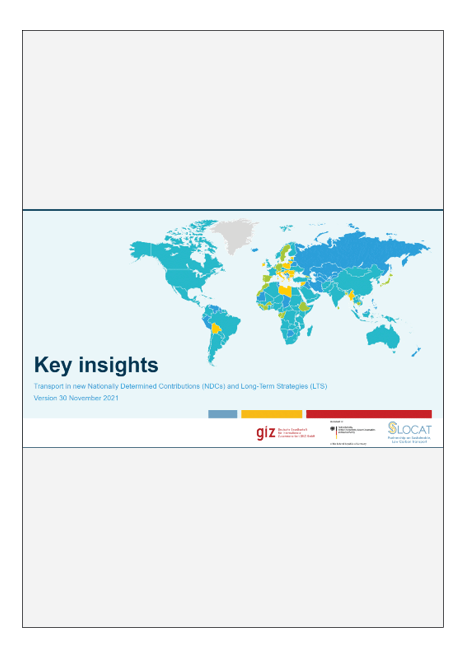Transport in New Nationally Determined Contributions and Long-Term Strategies
By Daniel Bongardt, Marion Vieweg-Mersmann, and Nadja Taeger
Together with the SLOCAT Partnership on Sustainable, Low Carbon Transport, the TraCS project analysed the role of transport in new and updated NDCs and LTS. Transport plays a crucial role in achieving the goals of the Paris Agreement, considering that transport is the second largest polluting sector. Based on previous analyses by SLOCAT and GIZ on the first round of NDCs, this document highlights key insights from the analysis of NDCs and LTS submitted by November 25, 2021.
Although more and more countries are including the transport sector in their NDCs and LTS, many commitments remain vague, critical areas – such as freight transport – are not sufficiently addressed, and several NDCs miss the opportunity to link climate action in transport to a broader sustainability agenda. Download the presentation to learn more.
The data that the analysis is based on is available here: Tracker of Climate Strategies for Transportation.

